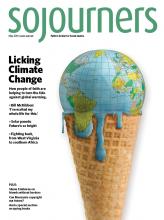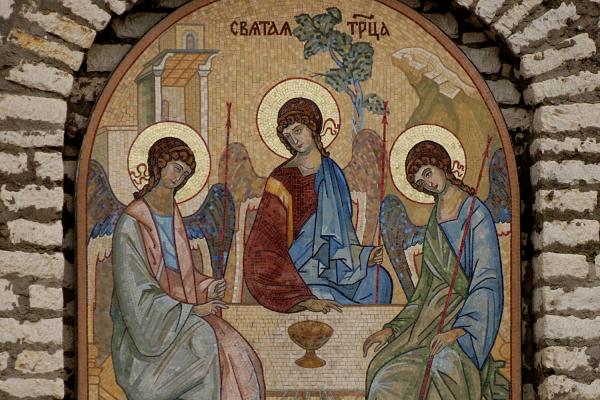I WAS BROUGHT UP up on stories of my family's emigration to Russia from England in the 1850s and of the three generations we lived there and intermarried. My grandparents fled the upheavals of revolution in 1917, returning to England. Having drunk deeply from the springs of Russian spirituality, it is second nature to me to hear the scriptures with Russian ears. As Eastertide culminates at Pentecost (rounded out in the wonderful coda of Trinity Sunday), I find myself murmuring as a mantra the great injunction of St. Sergius of Radonezh, "Beholding the unity of Holy Trinity, to overcome the hateful disunity of this world!" The doctrine of the Trinity is no mere antiquity, but a beacon pointing to the future that God desires for the world. In the Trinity, "hateful disunity" can be transformed into life-in-communion; our life together as human beings incarnating our identity as ones made into the image and likeness of God. I will find myself doodling on my notepad the provocative claim of the Russian lay theologian Nikolai Fedorov: "Our social program is the dogma of the Trinity."
Taking in again the Trinitarian grammar of our prayer and faith, I will find myself reinvigorated for the task of forging a spirituality that, as a great Anglican priest Alan Ecclestone wrote, "takes its Trinitarian imagery more seriously than ever before, relating the creativity, the humanizing, and the unification of [humankind] in one growing experience of mutual love." This from a man who was a passionate political activist writing from the thick of gritty urban politics, not from an ivory tower.
Read the Full Article

